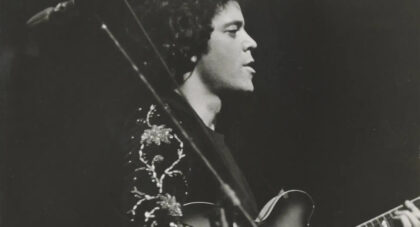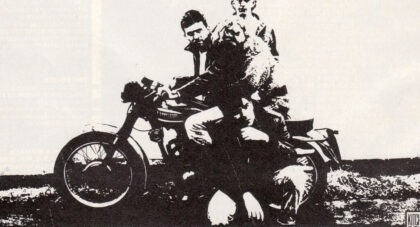Sam Amidon possesses the traits of an archetypal American songster: fiddle and banjo mastery, as well as a lifetime spent among his repertoire of deeply rooted folksongs. His interpretations of traditional tunes and ballads are often expansive reworks that set his singular voice and deft accompaniment amidst a frontier of harmonically rich orchestrations or a chatter of burbling jazz. He radiates a wondrous enthusiasm like John Hartford, and channels the tuneful grit of Bruce Molsky. Just as with those charismatic song-collector/performers before him, Amidon's most compelling and definitive instrument is his singing. His unmistakable voice makes a bald coo, delivered with composure, sans vibrato. It's akin to the high and lonesome sound, but with none of that idiom's aloof distance. Amidon sounds disarmingly present. That quality is, perhaps, at the core of his art: the ability to transform something timeless into something present, to alchemize a well-worn melody into a beautiful, mysterious sound.
This idea extends to the formation of his personal canon. His repertoire of "folk" music is remarkable in that it extends to contemporary pop songs and can move convincingly from the traditional "Short Life of Trouble" to Tim McGraw’s "My Old Friend" to R. Kelly’s “Relief.” Any distinction of authenticity between a communal folk song and a pop star's hit is eclipsed by Amidon's ability to pluck the essential sentiment and beauty out of his selection and send it billowing into the air, like making a wish with dandelion.
The Following Mountain marks a departure for Amidon, however. It is his first record to focus on original material rather than interpretations of folk songs. Traditional songs had been the peaks from which Amidon surveyed the aesthetic expanse of his musical world. The Following Mountain is a new summit. It was largely improvised, the songs culled from an epic jam session with an eclectic cohort of players: free-jazz legend Milford Graves, percussionist Juma Sultan, saxophonist Sam Gendel, as well as Amidon's most frequent collaborator and mainstay of the NY improv scene, Shazad Ismaily.
In line with the folk ethos, Amidon has always been keenly collaborative. Most notably, the composer Nico Muhly has conjured ebullient arrangements for many Amidon renditions. On his most recent studio album, Lily-O, Amidon worked with the guitarist Bill Frisell, the gentlest, prettiest player in the often-fiery free-jazz set. Both collaborations elicited a profound, harmonically complex Americana in the vein of Copland's mythic rodeo. The old-time tunes--these well known traditional forms--are jumping off points for Amidon and his pals, but also sturdy, well-worn vessels to be filled with (new) contemporary meaning. This is important cultural work! It allows the artist to speak with and build upon a shared song that is transpersonal and transhistorical. But where Amidon's articulations of folk songs come alive are in his inspired nuance: a cracking warble in his voice, a slippery trill of his fiddle, a candid remark in the studio that sticks to the record. It is this ephemeral, improvisational sinew, however, makes up the kernel of The Following Mountain. Amidon bypasses known forms (folk song/pop song) to conjure an "original" form through improvisation: the closest act to pure creation, to our mystical urge, to our divinity... It's a bit contradictory, but so is the nature of human existence.
Only the good shit. Aquarium Drunkard is powered by its patrons. Keep the servers humming and help us continue doing it by pledging your support.
To continue reading, become a member or log in.


